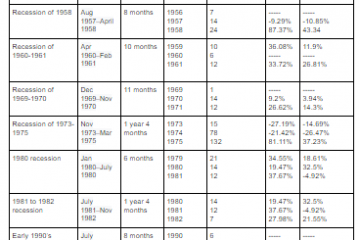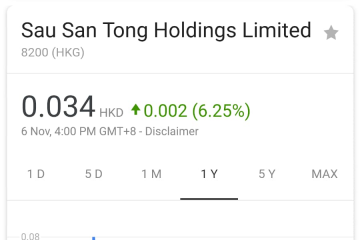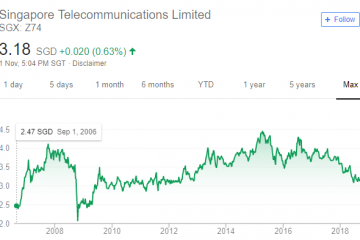
Are you overconfident in your stock picks? The only person that has the answer to that is you.
If you are interested to know more about how overconfidence can cause a positive dent or negative dent in your portfolio, read on …
A group of 1000 individuals participated in a series of experiments performed by Yale researchers. There were 2 groups. 1 group was for control purposes and the other group was tasked with finding answers to simple questions such as “How does a zipper work?”. The latter group then used the internet as a medium for research and found these answers. Next, they were asked to give answers to questions which had no relationship whatsoever to the questions which they originally researched. The group was then told to rate their explanations to the unrelated questions that they had to explain away. What did you think happened if you could hazard a guess? No prizes for this one though. This latter group later rated themselves with significantly superior explanations that the control group. Why is that so?
Well, very simply, the group of people who did research suddenly felt smarter and became overconfident. This is the overconfidence effect at work here. And this is a real bias that many of us are guilty of.And to be honest, I am guilty as charged. Imagine for a moment how such a bias can destroy us, especially when we are beginners to the game of investing. We think we know but the truth is we don’t! Imagine for a moment what overconfidence can do to investors! Your results could be supremely good or supremely bad. If you overallocate to a stock that increases by 100% in 6 months, well then, good for you. But if you overallocate to a stock that goes bankrupt, then very bad for you. And as investors, we should be mindful of this bias that plays out all too often. This is especially so for amateur investors who want to do well. For amateur investors, you want to do well for the next 3-5 years without any major blow ups. And then, with some experience, you will find your own footing in the market and develop an investing process that is uniquely yours.
At times, I find myself over confident about my stock picks but they fail to do all that well. At other times, I find myself not very confident about some of my stock picks and then, all of a sudden, they do really well. And of course, about a decade ago, I had the idea that the more I researched into a stock, the better. Little did I know that I was under the influence of the overconfidence effect. It seemed to me then that the ability to acquire more information seemed the way forward to be a good investor. That proved disastrous. So a decade ago, my thought processes were such.
Heck Of A Lot Of Research –> Plant Information Into Valuation Exercise –> Buy
Now this was my modus operandi then. Was it right? I sure thought I was. The only thing was that when we sink ourselves deep into research, we find more reasons to buy than sell. That hardcore research can be extremely disastrous. So this was what actually happened in my mind.
Heck Of A Lot Of Research –> Suddenly Thought I Was Super Smart –> Bias Creeped In —> Spoke To People & Read Research Reports To Find Validation –> Plant Information Into Valuation Exercise –> Buy
There is so much that happens in between, that is really within the confines of our mind. And then, without our very knowing, these biases distort our decision making. In my case at least, I thought I was smart and actually, I was becoming overconfident. And trust me, these biases have a real way of distorting decision making.
What I am trying to do over the last several years is to keep things simple and let as little bias as possible creep in. I have an investment process and I stick to it. And my process relies on quantitative values which are already in the balance sheet. I reduce the qualitative judgements to a minimum.
Now, more than ever, when it comes to stock picks, I focus on the things that should be focused on and then from there, I make a decision. And within minutes, I say “no” to a stock or “yes” to researching more about it. So I have these little “gates” within my mind that determine if I should look further into a stock or not. In another post perhaps, I will share more about these “gates” and how they have actually helped me as an investor.
Thank you for reading my dear friends. At TheHolyFinancier, we are building a site that we want to be proud of and to spread the message of intelligent investing. if you like this article, please share this with others! As always, may you be blessed with wisdom and discernment!
References
1.Fisher, M., Goddu, M. K., & Keil, F. C. (2015). Searching for Explanations: How the Internet Inflates Estimates of Internal Knowledge. Journal of Experimental Psychology, 144(3), 674-687. http://dx.doi.org/10.1037/xge0000070


